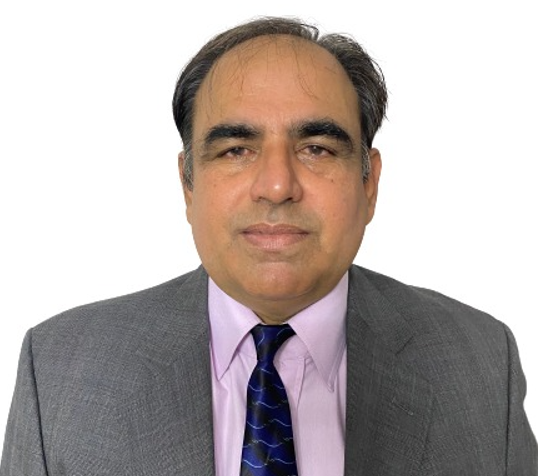-Dr. Rahul Kumar, PhD, Senior Diplomacy& Security Expert-
(Samaj Weekly, UK)- On 24th April 2022, Indian Prime Minister Narendra Modi visited the Jammu region in the Union Territory of Jammu & Kashmir (J&K) on the occasion of National Panchayati Raj Day. According to media reports from Jammu & Kashmir, on 22 April, 2022, a terror attack in Sunjwan( Jammu) took place in which an assistant sub inspector of the Central Industrial Security Force (CISF) was killed and more than 10 J&K Police and CISF personnel were injured. The J&K Police said that two militants affiliated with Jaish-e-Mohammad were involved in the attack who were later gunned down. They are believed to have infiltrated from the Jammu border and police have detained them. According to NIA sources, post the abrogation of Article 370 in August 2019, the cadres of banned terrorist organizations like Laskhar-e-Taiba (LeT), Jaish-e-Mohammed (JeM), Hizbul Mujahideen (HM), Al-Badr and their affiliates are propped up by Pakistan-based terror outfits” and are being used to carry out attacks in Jammu & Kashmir. According to Director General of Police(DGP), Dilbag Singh said that the two terrorists were part of a suicide squad of Pakistan-based JeM and their infiltration could be a “big conspiracy” to sabotage PM’s visit to Jammu and Kashmir. Militancy poses daunting challenges for the security forces in the region. In the past few months, Indian media reports that the terrorists made major attacks on the Indian Army personnels` and civilians. According to National Investigative Agency (NIA), “Pakistan –based terror organizations are creating unrest in Kashmir by floating pseudo-terror outfits”. India is also apprehensive that Pakistan will use Taliban fighters as a proxy to aggravate the insurgency in Kashmir( With the Taliban’s rise, India sees a renewed threat in Kashmir,” NPR, September 14, 2021).
There are several media reports that confirm that the Pakistan army under the new government might provoke militants associated with Taliban groups to create disturbance in Jammu & Kashmir. It is a fact also that the Modi government is controlling Jammu & Kashmir by remote control. There is a feeling of alienation among the majority of the Kashmiris. Free speech and freedom has been gagged in Jammu & Kashmir and the iron fist policy is in place. On the violation of Human Rights, the record is quite dismal. According to Forum for Human Rights in Jammu and Kashmir, “ arbitrary detentions continue, public assembly is still prohibited under Section 144 of the Code of Criminal Procedure 1973 (CrPC), and close to 1,000 people are still in prison, including minors and elected legislators.”
Simmering Political Uncertainty in the region
The political uncertainty has been deepening in Jammu & Kashmir. Since the abrogation of Article 370, the regional political parties have been demanding the restoration of Statehood to Jammu & Kashmir. The leaders of opposition parties are also demanding that the federal government should hold free and fair elections in Jammu & Kashmir. The Communist Party of India (Marxist) leader Mohammad Yusuf Tarigami said the “legitimate constitutional rights” of the people of J&K have been “taken away” over the last more than three years through a “series of rules and land laws”. To start with, the PM should announce lifting of the AFSPA [Armed Forces (Special Powers) Act] from areas (in J&K) where peace has returned followed by the return of J&K’s statehood and assembly elections, which will restore faith of people in democratic institutions,” Bukhari, a minister in PDP-BJP coalition government. National Conference (NC) led by Farooq Abdullah and Mehbooba Mufti’s PDP, accuse the BJP of tailoring the Delimitation Commission’s new cartography to suit its electoral calculations. Altaf Bukhari, president of the newly floated J&K Apni Party, said the problems in J&K need a “humane touch”. “Brick and mortar announcements are not what we expect from the PM,”
In nutshell, the Modi government in New Delhi could not achieve what it expected before the abrogation of Article 370. There is no denying the fact that Pakistan has been sending terrorists to Kashmir to execute attacks on the Indian Army and civilians. The involvement of the local Kashmiris who are found by the security agencies helping the cross-border terrorists can be stopped by taking them into confidence. In other words, the resurgence of militancy can be nipped in the bud if the state government talks to the people and wins their hearts. Let us stop the politics of vote bank and save the country, the people, and the valuable property in Jammu & Kashmir (J&K).
(Dr. Rahul Kumar is a Ph.D. in Sociology from Jawaharlal Nehru University, Delhi (India), is an independent researcher. His area of interest encompasses foreign policy analysis for international relations. The views expressed in this article are personal.)










